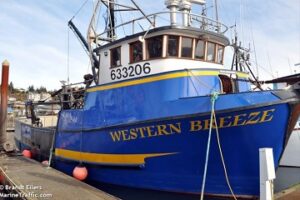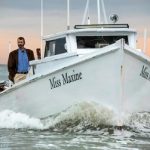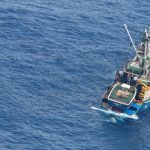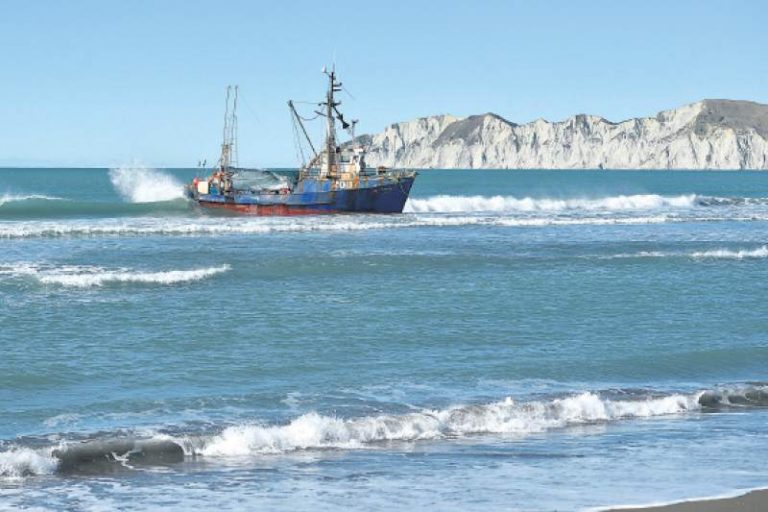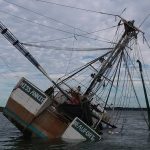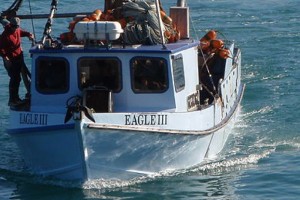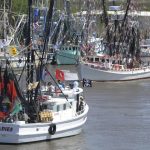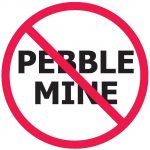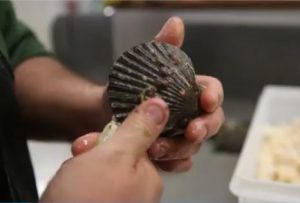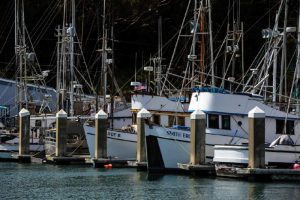Daily Archives: April 27, 2017
Trump Orders Review Of National Monuments, Including The First In The Atlantic Ocean
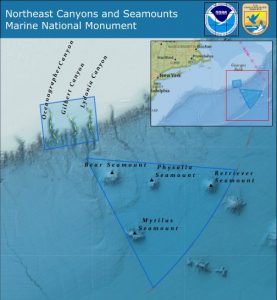 President Donald Trump this week ordered a review of the U.S. Antiquities Act. The move could impact the Atlantic Ocean’s first-ever marine national monument, created last fall. The monument covers nearly 5,000 square miles off the coast of Cape Cod. It’s home to a variety of wildlife and underwater landscapes. This week, Trump ordered his interior secretary to review dozens of monuments created over the last roughly two decades, which are larger than 100,000 acres. Trump said they represent a “massive federal land grab.” Lisa Dale, with the Yale Center for Environmental Law and Policy, said the review isn’t trying to rescind or undo anything — yet. “It’s quite heavy on ideology, and rather light on realism,” she said. lol! we’ll see! click here to read the story 17:19
President Donald Trump this week ordered a review of the U.S. Antiquities Act. The move could impact the Atlantic Ocean’s first-ever marine national monument, created last fall. The monument covers nearly 5,000 square miles off the coast of Cape Cod. It’s home to a variety of wildlife and underwater landscapes. This week, Trump ordered his interior secretary to review dozens of monuments created over the last roughly two decades, which are larger than 100,000 acres. Trump said they represent a “massive federal land grab.” Lisa Dale, with the Yale Center for Environmental Law and Policy, said the review isn’t trying to rescind or undo anything — yet. “It’s quite heavy on ideology, and rather light on realism,” she said. lol! we’ll see! click here to read the story 17:19
Illicit Business – Are Louisiana’s anglers selling their recreationally caught speckled trout?
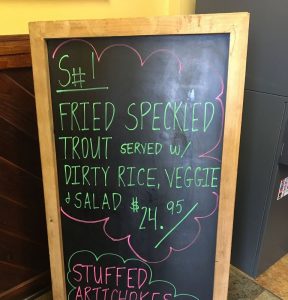 When fish are getting yanked into the boat almost as quickly as an angler can get a lure in the water, the fun sometimes overcomes discretion, and that same angler will wonder what he’s going to do with all that meat after he fillets the fish. Some eat what they can and give the rest away, while others load up their freezers with fillets packed in Ziploc bags that they’ll throw out in two years. But another smaller minority will sell their catch to restaurants, seafood markets or acquaintances. It’s common dock talk among anglers that some of their cohorts have even put their kids through college with money raised from selling recreationally caught fish, particularly speckled trout. click here to read the story 15:24
When fish are getting yanked into the boat almost as quickly as an angler can get a lure in the water, the fun sometimes overcomes discretion, and that same angler will wonder what he’s going to do with all that meat after he fillets the fish. Some eat what they can and give the rest away, while others load up their freezers with fillets packed in Ziploc bags that they’ll throw out in two years. But another smaller minority will sell their catch to restaurants, seafood markets or acquaintances. It’s common dock talk among anglers that some of their cohorts have even put their kids through college with money raised from selling recreationally caught fish, particularly speckled trout. click here to read the story 15:24
Deepwater Wind Confronted – Fishermen ask trustees to fight offshore wind farm
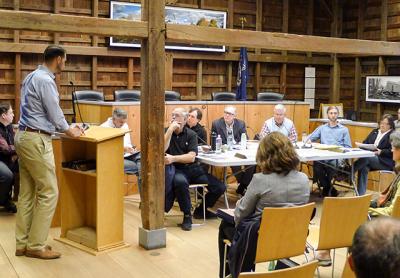 A representative of the Rhode Island company that is planning a 15-turbine wind farm 30 miles off Montauk faced sharp questions from fishermen and other residents at the East Hampton Town Trustees meeting on Monday, as well as from the trustees themselves. A lengthy presentation and a subsequent question-and-answer session occupied more than half of the nearly four-hour meeting, as fishermen voiced fears of disruption and even the outright destruction of their livelihood. “Most of fishermen I know, we are against this project from the beginning to the end,” Terry Wallace said to applause. Brad Loewen, chairman of the East Hampton Town Fisheries Advisory Committee, criticized Deepwater’s effort to hire fisheries representatives here. “You can try to buy advice, you can try to buy trawl surveys, you can try to buy scientific data,” he said. “I would suggest . . . that you don’t necessarily listen to somebody that was hired by them,” he told the trustees. “Listen to the people doing the job, somebody actually out trawling, running around that bay, trying to catch fish, and trying to make a living.” click here to read the story 14:18
A representative of the Rhode Island company that is planning a 15-turbine wind farm 30 miles off Montauk faced sharp questions from fishermen and other residents at the East Hampton Town Trustees meeting on Monday, as well as from the trustees themselves. A lengthy presentation and a subsequent question-and-answer session occupied more than half of the nearly four-hour meeting, as fishermen voiced fears of disruption and even the outright destruction of their livelihood. “Most of fishermen I know, we are against this project from the beginning to the end,” Terry Wallace said to applause. Brad Loewen, chairman of the East Hampton Town Fisheries Advisory Committee, criticized Deepwater’s effort to hire fisheries representatives here. “You can try to buy advice, you can try to buy trawl surveys, you can try to buy scientific data,” he said. “I would suggest . . . that you don’t necessarily listen to somebody that was hired by them,” he told the trustees. “Listen to the people doing the job, somebody actually out trawling, running around that bay, trying to catch fish, and trying to make a living.” click here to read the story 14:18
FISH-NL calls for resignation of leader of province’s Federation of Labour, and they’re not alone!
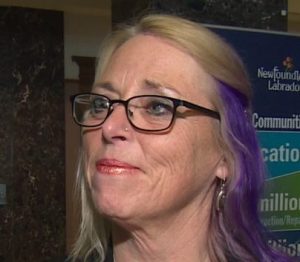 The Federation of Independent Sea Harvesters of Newfoundland and Labrador (FISH-NL) is demanding the resignation of Mary Shortall, president of the province’s Federation of Labour, for taking sides in the dispute between FISH-NL and the FFAW, as well as blatant conflict of interest. “Mary Shortall has no business choosing sides — standing by the executive of the FFAW over rank-and-file fish harvesters who are slowly being starved out by a combination of failed management and a union that has lost its way,” says Ryan Cleary, President of FISH-NL. “Mary Shortall has also lost touch with workers in this province and should be forced to resign immediately, and it’s not just me who’s saying that — but at least one local union president.” click here to read the press release (image cbc) 11:34
The Federation of Independent Sea Harvesters of Newfoundland and Labrador (FISH-NL) is demanding the resignation of Mary Shortall, president of the province’s Federation of Labour, for taking sides in the dispute between FISH-NL and the FFAW, as well as blatant conflict of interest. “Mary Shortall has no business choosing sides — standing by the executive of the FFAW over rank-and-file fish harvesters who are slowly being starved out by a combination of failed management and a union that has lost its way,” says Ryan Cleary, President of FISH-NL. “Mary Shortall has also lost touch with workers in this province and should be forced to resign immediately, and it’s not just me who’s saying that — but at least one local union president.” click here to read the press release (image cbc) 11:34
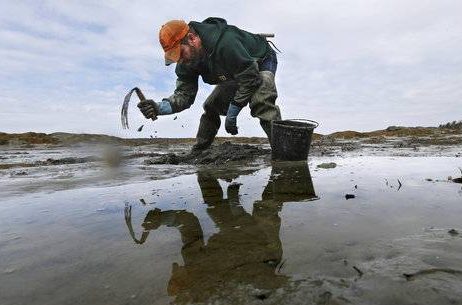
Mysterious drop in prized bait worms threatens a way of life
Dan Harrington makes his living unearthing marine worms by hacking away at mudflats with a tool that resembles the business end of an old steel rake. He’s fine with the freezing weather, the pungent aromas and the occasional nip from an angry crab, but his latest problem is the big one – the worms just aren’t there like they used to be.,,, Scientists are struggling to figure out where the worms have gone. Among the factors that could play a role in the decline are rising temperatures in the Gulf of Maine, changes in currents that distribute worm larvae and increased harvesting pressure, said William Ambrose, a Bates College professor and marine researcher. It’s also possible a growing number of invasive green crabs is preying on the worms, said Brian Beal, a marine ecology professor at the University of Maine at Machias. click> (invasive green crab discovered in Dungeness National Wildlife Refuge) But Beal and Ambrose say more research is needed to understand what’s going on. click here to read the story 10:26
Invasive European green crab found in Dungeness Bay
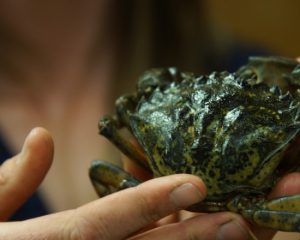 An invasive crab species scientists and locals feared to find on the North Olympic Peninsula was discovered in traps last week in Dungeness Bay. Staff and volunteers at the Dungeness National Wildlife Refuge found at least 13 European green crabs in Graveyard Spit across from Dungeness Landing and continue to investigate just how prevalent the species might be there. Emily Grason, program coordinator for Washington Sea Grant’s Crab Team, said these are the first of the crab to be found in inland Washington since the crab was captured in August 2016 in Westcott Bay off San Juan Island in Puget Sound. Sea Grant officials say the European green crab, a small shore crab measuring up to 4 inches across, is native to the Atlantic Ocean and Baltic Sea and is known for damaging the soft-shell clam industry in Maine. click> It will eat clams, oysters, mussels and marine worms, and is potentially harmful to birds and small crustaceans. click here to read the story 10:12
An invasive crab species scientists and locals feared to find on the North Olympic Peninsula was discovered in traps last week in Dungeness Bay. Staff and volunteers at the Dungeness National Wildlife Refuge found at least 13 European green crabs in Graveyard Spit across from Dungeness Landing and continue to investigate just how prevalent the species might be there. Emily Grason, program coordinator for Washington Sea Grant’s Crab Team, said these are the first of the crab to be found in inland Washington since the crab was captured in August 2016 in Westcott Bay off San Juan Island in Puget Sound. Sea Grant officials say the European green crab, a small shore crab measuring up to 4 inches across, is native to the Atlantic Ocean and Baltic Sea and is known for damaging the soft-shell clam industry in Maine. click> It will eat clams, oysters, mussels and marine worms, and is potentially harmful to birds and small crustaceans. click here to read the story 10:12
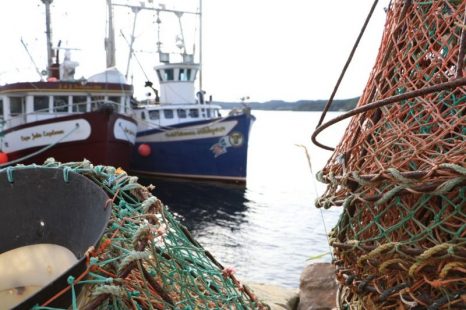
Newfoundland and Labrador Fishermen don’t agree that crab, shrimp stocks are as bad as scientists say
The province’s fishery appears to be on the brink of a sea change. News over the past couple of months of continually declining snow crab and northern shrimp stocks in waters off Newfoundland and Labrador’s coasts have sent waves of concern washing over the fishing industry. The expected cuts this spring to crab and shrimp quotas have fisherman all around the province on edge. And there’s little else to fill in the gap — the northern cod stocks, while showing signs of strong growth in recent years, are still not ready for a major commercial fishing effort. Lying in the balance are huge investments in vessels and fishing gear, work for boat crews and plants, and the survival of rural areas of the province. But while scientific stock assessments of crab and shrimp reveal a dismal picture, many fishermen are not so sure that picture is accurate. In fact, many say they are seeing things a bit differently out on the water, and see some hope for the fishery of the future if fishermen are willing to branch out into other potential commercial species. click here to read the story 08:50
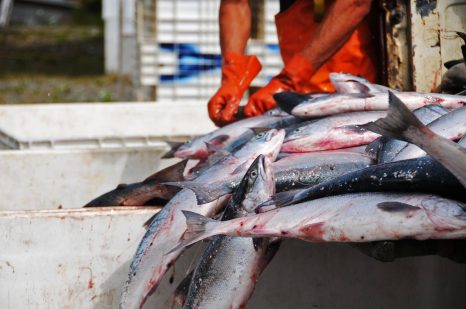
2017 sockeye forecast weak for Cook Inlet
Upper Cook Inlet’s commercial salmon fishermen are predicted to have another slow season, if the forecast proves accurate. The Alaska Department of Fish and Game’s 2017 commercial salmon fishery outlook predicts a total run of about 4 million fish to all the stream systems in Upper Cook Inlet, which includes the Kenai, Kasilof and Susitna rivers as well as a number of smaller streams. Commercial fishermen are projected to harvest about 1.7 million of that, the lowest projected harvest in the last 15 years. It’s largely the Kenai River not living up to the recent 10-year average. The river is projected to see a return of 2.2 million sockeye, about 39 percent below the recent 10-year average of 3.6 million fish. By contrast, the Susitna River is projected to see about 366,000 sockeye return, about 5 percent below the average; the Kasilof River is expected to see about 825,000 sockeye, about 16 percent below the recent average, according to the forecast. Better than 2016 – Improving prices – Board of Fisheries changes – click here to read the story 08:29

































